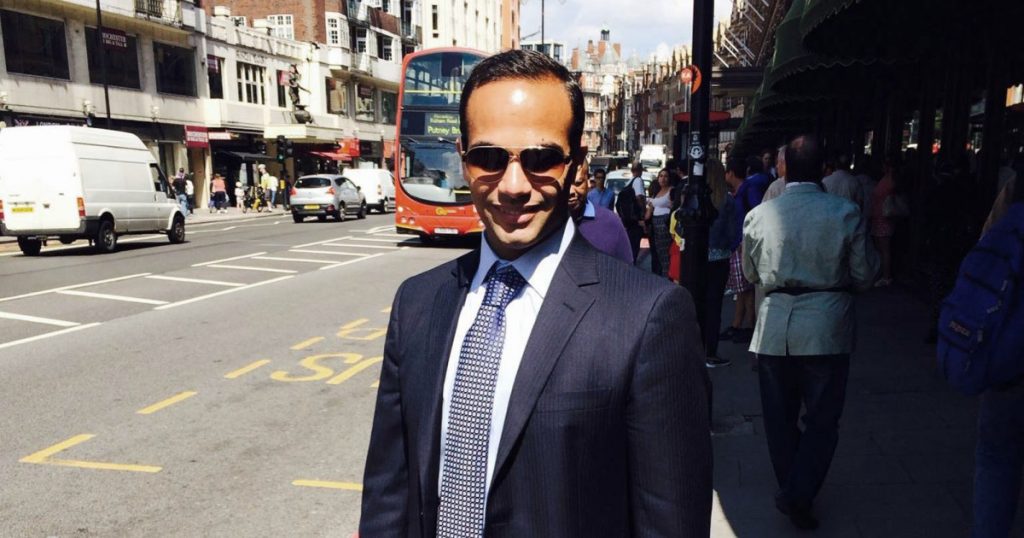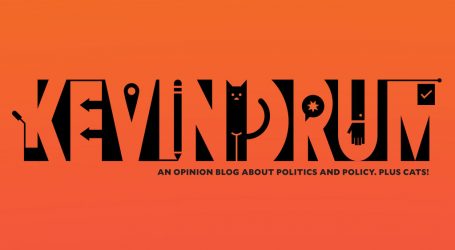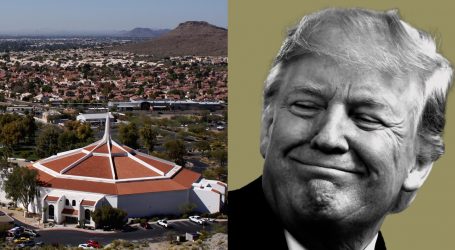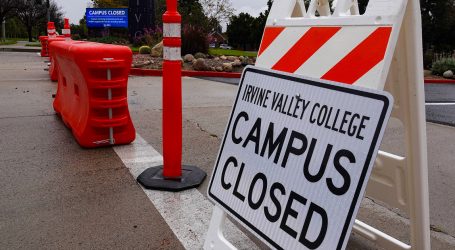George Papadopoulos Claimed Trump Encouraged His Efforts to Establish a Russian Back Channel
Former Trump campaign foreign policy adviser George Papadopoulus, pled guilty to lying to the FBI in early October.
Looking for news you can trust?Subscribe to our free newsletters.
A campaign adviser for Donald Trump saying that Trump encouraged his efforts during the 2016 election to make contact with the Kremlin. President Barack Obama’s reaction to the salacious details in the infamous memos written by former British intelligence officer Christopher Steele. Steele’s own assessment of the accuracy of the reports he compiled regarding Trump’s personal conduct in Russia. Roger Stone’s alibi challenged. A secret source in the Russian government telling a US official in 2014 that Vladimir Putin was planning a major information war campaign against the West and the United States. These are some of the scoops in Russian Roulette: The Inside Story of Putin’s War on America and the Election of Donald Trump, a new book by Michael Isikoff, the chief investigative reporter for Yahoo News, and David Corn, the Washington bureau chief for Mother Jones.
Last week, Mother Jones and Yahoo News published excerpts from two chapters of the book—one recounting Trump’s 2013 visit to Moscow, the other telling the secret story of Obama’s response to Russia’s attack on the 2016 election. Each one generated news stories about revelations in these chapters including that Trump in 2013 partied at a raunchy Las Vegas nightclub with two men who would later help set up the infamous June 2016 meeting in Trump Tower between top Trump campaign advisers and a Russian emissary supposedly bringing them Kremlin “dirt” on Hillary Clinton; that Trump was obsessively eager to meet Putin when he was in Moscow for his Miss Universe contest and even suggested to a colleague they lie and say Putin, who was a no-show, attended the event; that Trump routinely dumped finalists at his beauty pageants because they looked too “ethnic”; and that a clash occurred within the Obama White House over whether to hit Russia with cyberattacks in retaliation for Moscow’s assault on the US election.
The rest of the book has other significant disclosures. Here’s an incomplete list.
– George Papadopoulos claimed Trump encouraged him to connect with the Russian government. As a member of Trump’s team of foreign policy advisers, Papadopoulos, a young energy consultant with little national security experience, spent months in the spring and summer of 2016 trying to set up a back channel between the campaign and the Kremlin, in part to arrange a Trump-Putin meeting before Election Day. His efforts were known to senior campaign aides, including campaign co-chairman Sam Clovis and top campaign aide Paul Manafort. According to a later court filing, Papadopoulos, who in October 2017 pleaded guilty to lying to the FBI, aimed to set up an “off the record” meeting between campaign representatives and Putin’s office. Trump has famously denied there was any relationship between his campaign and Moscow. But Russian Roulette reveals that Papadopoulos has told investigators that at a March 31, 2016, meeting Trump held with his foreign policy team, when Papadopoulos informed Trump he had contacts in the United Kingdom who could set up a meeting between Trump and Putin, Trump said this was an “interesting” idea. Trump, according to Papadopoulos’ account, looked at then-Sen. Jeff Sessions (R-Ala.), a top Trump adviser at the time, as if he expected him to follow up. Afterward, Papadopoulos, working with Russian cutouts, kept pursuing such a meeting.
– A secret source. According to the book, a US official in Russia in 2014 developed a high-level source in the Russian government who regularly shared inside information about Kremlin doings. After Viktor Yanukovych, the president of Ukraine and a Putin ally, fled Kiev in February, this source told his American contact that Putin was planning to move into Crimea. He also informed the US official that Putin was increasingly under the influence of an ultranationalist Orthodox Russian monk named Father Tikhon Shevkunov and that Putin and his inner circle had total contempt for Obama, denigrating the president as weak but also accusing him of meddling in Russia’s affair. Putin’s aides often used racist terms when referring to Obama, calling him a “monkey” and using the N-word. But most alarming, this secret source told the US official that the Kremlin was planning a wide-ranging clandestine campaign to undermine Western democracies that would include cyberattacks, information warfare, propaganda, and social media efforts. The US official sent in reports based on the source’s information. Yet these warnings garnered little attention within the US government. “Anybody who had any doubt about Putin’s intentions,” the US official later said, “just wasn’t reading what we reported.”
– Steele isn’t sure the pee party happened. Steele’s dossier became most notorious because it included the allegation that Trump had prostitutes put on a “golden showers” performance in his hotel room when he was in Moscow in 2013. Steele’s larger point was that the Russian government, according to his sources, had obtained compromising information about Trump’s personal conduct that could be used to blackmail Trump. There still is no confirmation anything sordid happened in Trump’s suite that particular night. (At least one Trump associate has said Trump engaged in sexual antics on previous trips to Russia.) Steele, according to Russian Roulette, has told people that he believes that 70 to 90 percent of the broad assertions of his reporting—that Russia mounted a campaign to cultivate Trump and in some manner colluded with the Trump campaign—was accurate. But he is less certain about the most sordid allegation. Regarding whether prostitutes in Moscow had urinated in Trump’s presence, Steele has told colleagues, “It’s fifty-fifty.”
– Roger Stone’s alibi. In August 2016, Stone, a longtime adviser to Trump and self-proclaimed dirty trickster, repeatedly claimed he was in direct contact with Julian Assange and WikiLeaks. And several times during the campaign, he posted tweets that suggested he had advance knowledge about WikiLeaks’ dumps targeting the Clinton campaign. After the election, Stone retreated from his claim that he was in touch with Assange and maintained that he had never communicated directly with Assange. He insisted that whatever he knew about WikiLeaks’ intentions had been gleaned from Assange’s own tweets and then “confirmed” with a back channel he had to Assange: Randy Credico, a New York radio show host and comic who was an Assange supporter. But in an interview for this book, Credico said he had never spoken to Assange before August 25—17 days after Stone first publicly said he had “communicated” with Assange. Credico also said he “absolutely” never told Stone anything about Assange’s plans—because he knew nothing about them. “He’s got me as the fall guy,” Credico said of Stone. “It’s ridiculous.” Credico’s statements undercut Stone’s postelection cover story. In an interview for the book, Stone said of Credico, “His memory is either selective or faulty.”
– Paranoia in Trumpland. In early January 2017, four leaders of the US intelligence community—Director of National Intelligence James Clapper, FBI chief James Comey, CIA Director John Brennan, and National Security Agency director Admiral Michael Rogers—briefed President-elect Trump on their about-to-be-released report that concluded that Russia had waged its cyberattack on the 2016 election to help Trump become president. They knew he wouldn’t like hearing this. They also had a dilemma on their hands: whether to tell Trump about the Steele dossier, which had not yet become public but was circulating among officials and reporters in Washington. After much discussion, the four had decided that after the briefing Comey would stay behind and give Trump a two-page summary of the Steele memos. Comey did just that, telling Trump that none of the lurid allegations had been confirmed and that he and the others had merely wanted to provide Trump a head’s up about material that could become public. After Comey departed, Trump was livid. He told aides, “This is bullshit.” He and his aides wondered why Comey had gone through this exercise. Then it hit Trump. “It’s a shakedown,” he exclaimed. Comey was trying to blackmail him, sending him a message that he and the others had something on him. This belief would shape Trump’s tumultuous relationship with Comey and the intelligence community.
– Obama’s reaction to the Steele dossier. Near the time the spy chiefs briefed Trump on the intelligence community’s report on the Russian attack, Susan Rice, the national security adviser, encouraged Clapper during the daily intelligence briefing to tell Obama about the “golden showers” allegations. After Clapper did so, Obama turned to Rice and said, “Why am I hearing this?” The president was incredulous. He added, “What’s happening?” One participant in the meeting later said, “You don’t really expect to hear the term ‘golden showers’ in the President’s Daily Brief or that the guy who is going to become president may be a Manchurian candidate.”
– Biden: “It’s treason.” In the last weeks of the Obama presidency, Vice President Joe Biden was briefed on intelligence reports on the connections between assorted Trump associates and Russians. He had a visceral reaction. “If this is true,” he exclaimed. “It’s treason.”
– Paranoia in Clintonland. In March 2016, FBI agents showed up unannounced at the Brooklyn headquarters for Hillary Clinton’s campaign to discuss the campaign’s computer network. Several senior Clinton aides freaked out when they saw the agents entering the office. At the time, Clinton was under investigation for her mishandling of emails and classified information when she had been secretary of state and had used a private server for her electronic communications. Some Clinton campaign officials believed that agents within the bureau were dragging out the investigation to do Clinton harm and wondered if this visit was related to that probe. Robbie Mook, the campaign manager, was so worried about the FBI that he refused to meet with the agents. He was concerned that if he attended a meeting with FBI agents, they might share with him classified information and that subsequently he might in a public forum inadvertently refer to this material. Then he could become a target of an FBI investigation. He even wondered if the FBI might be trying to set him up. He ordered the campaign’s lawyers and IT people to meet with the agents, who had nothing of note to convey other than they had information indicating that entities they would not identify had tried to penetrate the campaign’s network. This was not news to the campaign. Its IT crew had detected many such attempts. With the FBI refusing to provide any details, the Clintonites considered the meeting pointless. Later, they would realize that the FBI did not share with them what would have been valuable information that the bureau possessed at the time: Russian hackers had penetrated the Democratic National Committee. This episode was a sign of just how suspicious the Clinton campaign was. “I was paranoid,” Mook later recalled. “I thought it was a ruse.”
– Not naming Putin. On October 7, 2016, after weeks of White House deliberations over how to respond to Russia’s cyberattacks on the election, the Obama administration issued a statement blaming Moscow for this assault. In the days leading up to this release, Obama’s top national security advisers discussed and debated the details—and the punctuation—of the statement, especially one significant element: accusing Putin by name. The US intelligence community had assessed that Putin had ordered and was overseeing the attack on American democracy, and a near-to-final draft stated this explicitly. But there was concern among Obama’s top policymakers that naming Putin in a public document would be an overly provocative step—and could place at risk some of the intelligence community’s sources. His name was deleted. The statement would say, “only Russia’s senior-most officials could have authorized” the attack.
– High fives in Moscow. In the weeks after the election, the intelligence community reviewed intelligence previously gathered and concluded by early December that the Russian operation had aimed not just to foment chaos but to elect Trump. As one administration official later explained, “We vacuum up a lot of intelligence that is not exploited in real time. Things sat in databases until queried. Not until after the election did analysts go into these databases and find a lot of stuff that changed the assessments. Plus, intelligence picked up certain Russians high-fiving after the election.” And weeks earlier, before Election Day, one top-secret intelligence report circulated among administration officials reporting that in July, following WikiLeaks’ dump of Democratic Party emails stolen by Russian hackers, Kremlin officials were congratulating themselves on a job well done. “The Russians were talking, telling one another, ‘great job,’” an official who reviewed the report later said. “It was pretty specific. They were celebrating their success.”
– Real-life Homeland. During the transition, Obama administration officials saw numerous intelligence reports indicating there were communications between Trump associates and Russians. This pattern of contact—which included conversations that Michael Flynn and Jared Kushner were each having with Russians—disturbed these aides. They suspected—and feared—the worst. Some Justice Department officials believed the Trump team might be violating the Logan Act, a law over 200 years old (and never successfully prosecuted) that prohibits private citizens from interfering in US diplomatic interactions with other governments. “We got a sinking feeling, a feeling of dread,” an Obama aide recalled. “Were the incoming national security adviser and Trump’s son-in-law in the bag with the Russians? It looked like a season of Homeland.”
– A 2016 Trump Russian deal with offshore companies. During the first few months of Trump’s presidential campaign, he and his lawyer, Michael Cohen, were trying to score a deal in Moscow: the building of a tower that would bear Trump’s name. The venture had been put together by a former felon named Felix Sater who years earlier had worked with Trump to develop the Trump SoHo project in New York City and to search for projects in Russia. Now, as Trump was campaigning for president (and making a series of comments favorable for Putin), he was not telling the voters that he was at the same time negotiating a deal that would need the approval of Putin’s government to proceed. (Cohen would kill the venture in early 2016.) Not until well after Trump was elected president would news of this enterprise become public. But one fact was not revealed: who was truly behind the Russian side of the project. A Russian company named I.C. Expert had negotiated the deal with Cohen. And in a letter of intent Trump signed, the chairman of I.C. Expert, Andrey Rozov, stated he owned 100 percent of the firm. Yet, as Russian Roulette notes, according to the Russian tax registry, I.C. Expert, which had no experience in developing luxury hotels and apartment complexes, was actually owned by three offshore companies, with one of those firms controlled by a Cypriot attorney connected to Russian finance. This deepens the mystery: who was trying to strike a lucrative deal with Trump when he was a candidate?
Russian Roulette contains other news. It reports that during the top-secret White House meetings about Putin’s covert campaign against the 2016 election, the administration’s top national security officials never discussed the wide-ranging clandestine social media campaign Russia had mounted—an operation that included posting divisive material on Facebook, Twitter, and other sites, much of it promoting Trump and denigrating Clinton. This is an indication that the FBI, the CIA, and the NSA did not catch this operation—a major intelligence failure. And in the book, Clapper confirms that in mid-August 2016 when Trump, as the Republican nominee, received his first intelligence briefing, he was told that the US intelligence community had concluded that Moscow was orchestrating the cyberattacks that targeted the Democratic Party. Nevertheless, Trump continued to deny vociferously that Russia was meddling in the election. Though the book does provide ammunition to critics of how Obama handled the Russian attack, it shows that Trump essentially provided cover to Moscow and made it harder for Obama to forge a bipartisan response to Putin’s assault.





